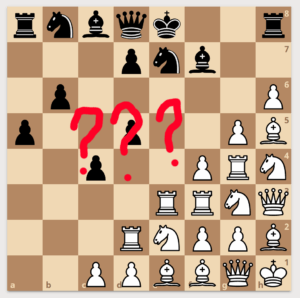So much financial advice relies on defense, such as reducing spending, but you need a good offense plan too. Just like in a game of chess.
I confess I’m not much of a sports person.
I collected baseball cards as a kid, and was a semi-devoted Philadelphia Phillies fan for a while, but I could never get into the whole culture of mainstream sports.
And let’s not even talk about playing sports. Of course not.
So I’m not the best person to use a sports analogy when it comes to making financial progress.
So, how about chess? I’m no good at chess either, but it’s a little more my speed.
Either way, there’s a good analogy in there. And it has to do with how you play.

Table of Contents
Defense
When you’re playing any kind of game, you need to protect what you have.
In chess, that means not leaving your king undefended.
In baseball, that means a good fielding game.
In football, that means hitting people. (I assume. That’s usually what it means in football.)
And when it comes to your finances, this means protecting your assets.
These are things like insurance, yes, but mostly, defense involves reducing spending.
Spend less than what you make. Track your spending. Build an emergency fund.
Defense is crucial work. If you don’t prepare a proper defense, you are going to leave yourself open to attack, and by this, I mean financial penalties (mainly debt, and the loss of control and opportunity that comes with it).
But you can’t just play defense.
Otherwise, you’ll have an entire chess piece defense army, but you’ll never win. You can’t checkmate your opponent if everything you have is defending the king.

Offense
You need a good offense.
In chess, that means a multi-pronged attack toward your opponent’s king.
In baseball, that means a good hitter who’s also a good runner.
In football, that means hitting people. (Again, I think.)
In your finances, that means that it’s not enough to save money. You have to earn it.
Offense means asking for raises, getting a better job, starting your own business. Investing for your future.
You need a good offense. But you can’t just have an offense either. After all, if you just play financial offense, you may make tons of money, but you’ll blow it all, so it won’t matter.
In chess, that’s like throwing a kamikaze play toward your opponent’s king, but leaving your own king undefended. Not good.

You need both
A lot of financial advice ignores offense, focusing just on how much you can
save.
And I’ll admit that over the years I’ve been guilty of that. I mean, saving a bit on your Costco membership is nice, but if you think about it, does it really matter what gas prices are?
You need a good defense and a good offense:
- If you don’t have a good offense, you’ll hoard all of your pennies, but live a really boring life.
- If you don’t have a good defense, you’ll waste so much opportunity.
The goal of financial freedom isn’t to live a frugal, penny-pinching life, it’s to be able to live the life that you want, in the way that you want it, without being constrained by finances.
Or by rooks.



